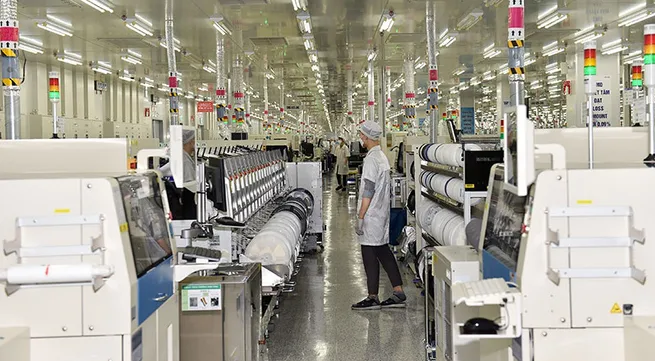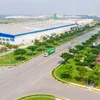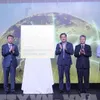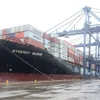Vietnam to create new filter for foreign investment

The specific criteria for the foreign direct investment (FDI) attraction filter are being determined within a draft plan formulated by the Ministry of Planning and Investment (MPI) for the 2021-2030 period that will be presented to the government for approval.
Based on the reality in Vietnam as well as international experience, the MPI has proposed seven criteria for attracting FDI: investment capital, labour, technology, technology transfer, connectivity and ripple effect, environment, and defence-security.
The investment capital criterion is set out to minimise small but land-intensive projects while the labour criterion will help enhance labour use efficiency and reduce pressure on social infrastructure and public order in localities which are overburdened with a high density of workers.
For the technology criterion, FDI enterprises will enjoy investment preferences if they meet criteria regarding revenue from high-tech products, spending on research and development in Vietnam, and the ratio of highly skilled workers.
Technology transfer is also one of the four criteria for a foreign-invested firm to receive special investment preferences and is based on the list of technologies that are encouraged for transfer as well as the number of enterprises benefiting from technology transfer.
In order to strengthen the links between the foreign sector and domestic enterprises, the MPI is establishing a criterion on the ratio of Vietnamese enterprises participating in contracts to supply parts, raw materials and services along with the proportion of product prices created by Vietnamese enterprises.
This criterion is designed to address one of the largest drawbacks in attracting foreign investment, which is that the domestic content rate has only reached 20-25%. The rate is 40-45% for the garment and footwear sector and 30-35% in the production of household appliances, while it is even lower for car manufacturing (7-10%) and high-tech industries (5-10%).
For the environment, the MPI suggests raising the bar for environmental standards, energy efficiency and emission reduction in line with regional and international standards.
For operations that affect national defence and security or projects located in “sensitive” areas, they will have to undergo more thorough evaluation in all stages of investment licensing.
After two years of downturn due to the COVID-19 pandemic, FDI inflow to Vietnam is now showing signs of rebound thanks to the economic reopening policy. According to the General Statistics Office (GSO), FDI pledges reached 8.9 billion in the first quarter of 2022, down 12.1% from a year earlier, however new projects rose 37.6% while existing projects receiving additional investment soared 41.6%. It is notable that disbursement hit 4.42 billion, up 7.8%, which is the highest figure for the January-March period in the past five years.
Such data demonstrates that foreign investors regard Vietnam as a safe destination with confidence in the business climate in Vietnam as the country has put COVID-19 under effective control and the economy is recovering in the new normal period, said Le Trung Hieu at the GSO’s Department of National Accounts.
In March, Vietnam granted investment licence to the first project worth over 1 billion USD of the year, namely the Danish toy maker LEGO’s manufacturing plant worth 1.32 billion USD in Binh Duong Province. Earlier, in January, the Vietnam-Singapore Industrial Park in Bac Ninh also received an additional investment of 941 million USD.
The outlook of FDI inflow recovery is positive however Vietnam will face stiffer competition with other developing countries with similar markets and levels of development, technology and labour, noted the GSO.
Therefore, Vietnam needs to introduce measures to deepen the development of services, creating momentum for higher productivity in services, manufacturing and other sectors of the economy. It is also necessary to prepare all the required conditions to attract investment, such as cleared land, electricity planning, a high-quality workforce, and policies for supporting industries.





